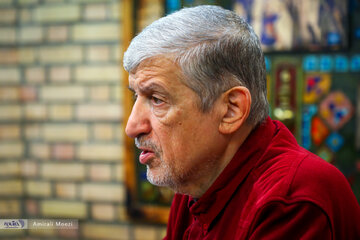
Title: National Unity Shines Amid Crisis: Calls for Social Reforms and Political Reconciliation
A Display of Solidarity in the Face of Adversity
Recent events have underscored the resilience and unity of the Iranian people in the face of external threats. Contrary to expectations from certain foreign analysts, the nation stood firm, demonstrating unwavering support for its leadership and armed forces during a critical 12-day conflict.
Political figures across the spectrum—from those within the country to dissidents abroad—condemned foreign aggression and emphasized national cohesion. This collective stance highlighted a profound sense of patriotism that transcended political differences.
The Pillars of Victory
Former parliamentarian Mansour Haghighatpour outlined three key factors behind Iran’s steadfast response:
- Leadership: The visionary guidance of the Supreme Leader steered the nation through perilous challenges.
- Military Strength: The armed forces delivered decisive blows to the enemy, inflicting long-term strategic setbacks.
- The People’s Resolve: Citizens from all walks of life rejected foreign interference, reinforcing the nation’s social capital.
Haghighatpour stressed that this unity must be honored through greater respect for the people’s dignity and demands.
A Call for Reform and Reconciliation
The moment demands introspection and reform, particularly in social policies. Haghighatpour argued for revisiting restrictive laws—such as internet filtering and mandatory hijab—to reflect the people’s demonstrated loyalty and sacrifices.
He cited a poignant moment at a martyrs’ funeral, where an unveiled woman’s emotional tribute moved him deeply. “I felt humbled by her sincerity,” he admitted, urging a shift toward compassion over coercion.
Media and Political Renewal
Criticism was directed at state media, accused of stifling diverse voices. Haghighatpour called for a complete overhaul, replacing divisive figures with those committed to national harmony.
He also advocated for political reconciliation, including the release of detained figures, to bridge gaps between the government and its critics. “This homeland belongs to all of us,” he emphasized. “Unity, not division, must guide our path forward.”
Conclusion: A New Chapter of Trust
The crisis revealed the depth of Iran’s social solidarity. Now, the challenge lies in transforming this unity into lasting trust through reforms that prioritize the people’s welfare and freedoms. As Haghighatpour concluded, “The people are our honor; we must serve them with humility.”
This article reflects the strength of national unity and the imperative for constructive dialogue in shaping Iran’s future.